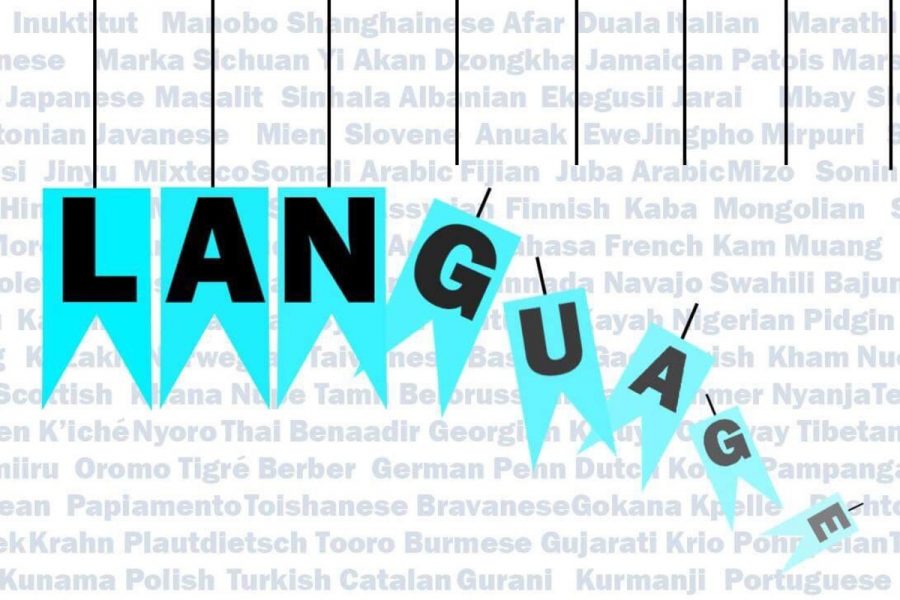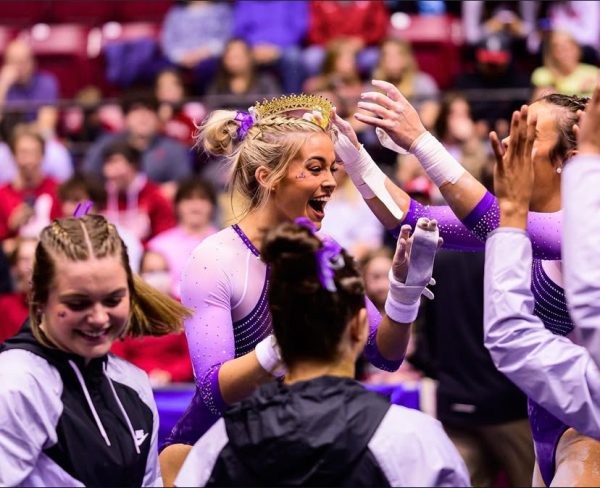Let’s embrace broken language
October 9, 2017
From the cramped cupboards of our kitchen, my mother pulls out an almost expired can of tomatoes and a Saran-wrapped lump of dough. As we fold the dough with our flour-caked hands, dotted with sesame seeds, we joke and giggle, forgetting a half-burned pizza in the oven. Our chatter vibrates with enthusiasm and scattered dialect, a mixture of fragmented English and Chinese. Just like the food, this dialect is my culture.
“This is a country where we speak English,” our president brags off the teleprompter. This sentiment, echoed in passing jokes and off-handed rants, masks thinly veiled threats to conform. When I heard these comments, I didn’t say that my grandparents have trouble pronouncing the words “World War I” and “silver.” I didn’t describe the condescending way people slowed down their words when they talked at my parents. In fact, I didn’t open my mouth at all, for fear of being labeled un-American.
Today, society mocks “imperfect” language; we laugh at odd accents and alienate unfamiliar dialects that don’t seem to fall under neat categories. English language proficiency is used as a social marker to classify and negatively evaluate people of non-English speaking backgrounds (NESB), according to a 2008 study by Megan-Jane Johnstone, a nursing professor at RMIT University. Focusing on language prejudice in health contexts, the study indicates that accented English is typically met with disdain and hostility and even used to justify denying NESB people access to resources.
The social stigma surrounding non-standard dialects permeates educational spaces as well; accents and cultural variations of English are seen as improper, inferior and uncivil in classrooms. Schools teach students to speak using textbook grammar, which marginalizes and silences students who may be more familiar with other dialects, according to Julia Snell, an English professor at the University of Leeds.
We take pride in policing others’ “improper” language, and it’s not only petty, but intrinsically harmful.
This mindset is perpetuated by a cultural perception of the constant need to correct language. Today, we rejoice at the satisfaction of correcting a simple misplaced “your” to a “*you’re” on a stranger’s Facebook comment.
We take pride in policing others’ “improper” language, and it’s not only petty, but intrinsically harmful.
Instead, we should embrace “broken” dialects.”There’s nowt wrong with regional dialects, nothing broke ass about slang,” Stan Carey writes in a 2013 Guardian article. “They’re part of our identities, connecting us to time, place, community, and self-image. They needn’t be displaced by formal English—we can have both.”
While some argue reliance on the dictionary or grammar rules is necessary for clarity, English essays and everyday conversation should be held to different standards. The dictionary doesn’t just contain English, it constrains it.
Let’s embrace the power of conversation and unique dialects as ways to forge new cultural understandings; there is no perfect way to speak and there is no perfect language.
because where you may see sentences, I see broken words
trapped emotion
unaware of frivolous spacing and
punc
tuation
marks
because where you see fractured rules, i see accents
garbled
and jumbled with
raspy authenticity
because where you see words, i see slang
spoken in street corners at grimy food stands
nudged between high fives and laughter
I see words evolving to reflect evolving people.
This is America, and we speak everything here.








woah • Oct 10, 2017 at 9:49 pm
i really like the formatting at the end